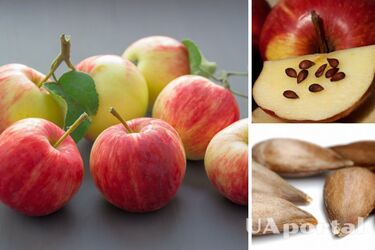May cause cyanide poisoning: which fruits should not be eaten with pits

Cyanide is a poisonous substance that can cause poisoning and, in some cases, even death. It is found in some plants and in the seeds of a number of fruits.
Most of all, cyanide is found in the seeds of apples, peaches, cherries, plums, apricots, pears, watermelons and melons.
Read also: Vegetables and fruits that should not be peeled: all the nutrients are in the skin
Cyanide poisoning can occur as a result of consuming a large number of seeds of these fruits.
Symptoms of cyanide poisoning include:
- Headache
- Dizziness
- Nausea
- Vomiting
- Difficulty breathing
- Spasms
- Loss of consciousness
In the event of cyanide poisoning, seek immediate medical attention. Treatment of cyanide poisoning involves the administration of an antidote, vitamin B12.
To avoid cyanide poisoning, you should:
- Do not consume large quantities of fruit pits.
- Do not give fruit seeds to children.
- Do not use fruit seeds to prepare medicines or other products.
It is important to remember that cyanide is found only in fruit pits. The fruit itself does not contain cyanide and is safe to eat.
Earlier, scientists said how many bananas eaten can stop a person's heart.
If you want to get the latest news about the war and events in Ukraine, subscribe to our Telegram channel!
